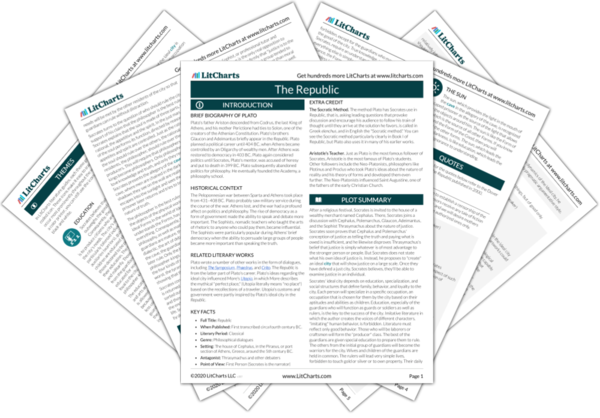Previous
Specialization
|
Previous
Specialization
|
Philosopher-King Theme Analysis |
Next
Soul
|
Since only a philosopher can truly know the Forms, the ideal abstracts of objects and ideas, only the philosopher has true knowledge. All other knowledge is based on the physical and impermanent. For instance, we can see particular beauty in the physical world, but it is subject to change. The ideal Form of Beauty, in the world of Ideas, is abstract and never changes. The philosopher, because he understands the Forms, understands truth and true knowledge. The philosopher-king, since he has knowledge of the Forms, and he understands how to rule, is best suited to lead.


Unlock explanations and citation info for this and every other The Republic quote.
Plus so much more...
Get LitCharts A+